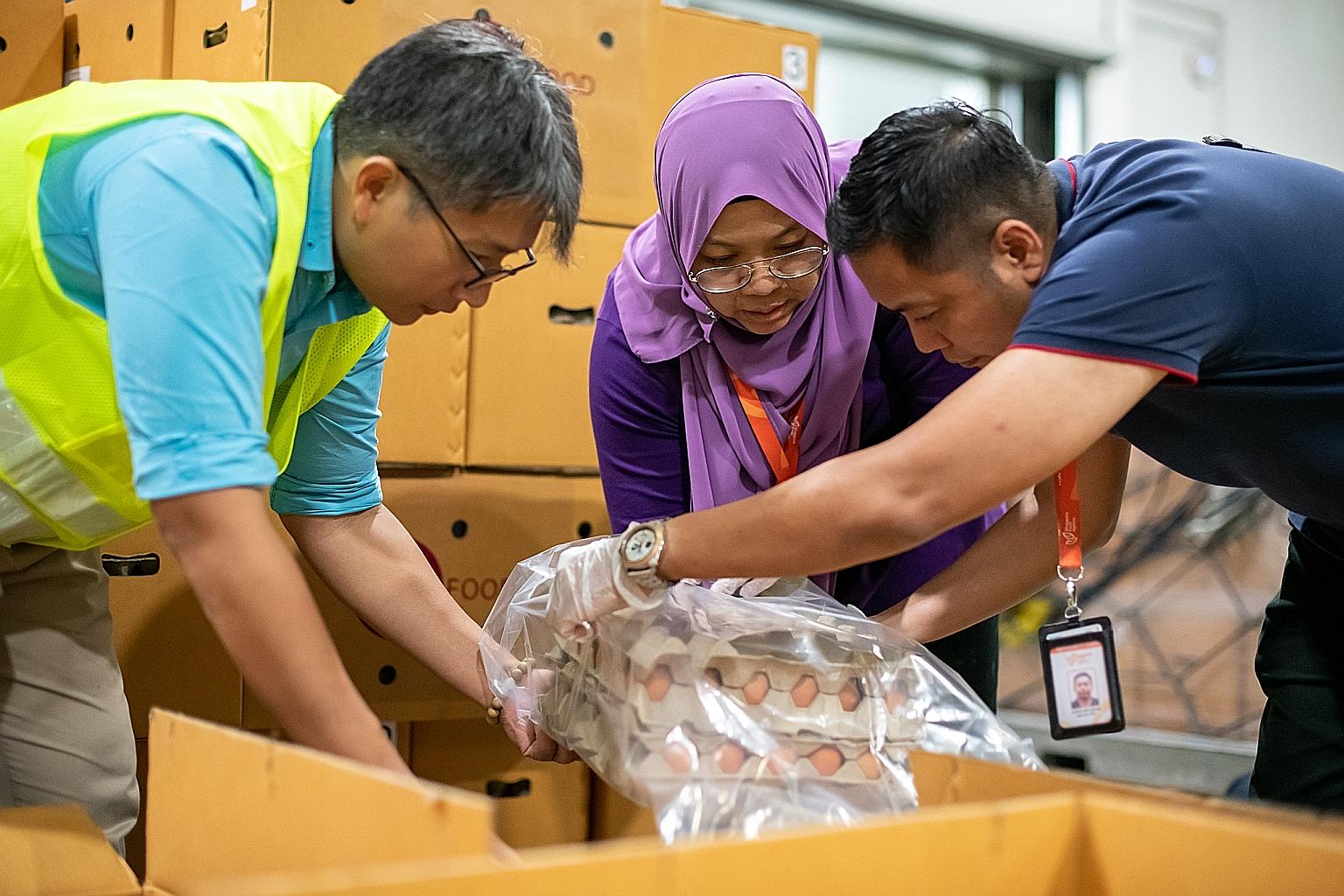Shift in global supply chains offers opportunities: Chan Chun Sing
Singapore stands to benefit as multinational firms move operations to region, he says
Sign up now: Get ST's newsletters delivered to your inbox

In March, a Singapore Airlines cargo plane brought in 300,000 eggs from Thailand, as the Republic ramped up its import of eggs and food items from other countries.
PHOTO: MINISTRY OF TRADE AND INDUSTRY
The shift in global supply chains caused by the Covid-19 pandemic is irreversible but will bring opportunities for Singapore as multinational companies move their production lines to the region, said Trade and Industry Minister Chan Chun Sing.
He sees a new normal, with companies shifting their operations from China and India to South-east Asia, where Singapore, as a regional hub, is well positioned to seize the opportunities they bring.
"Some people think that supply chains might return to what they were before the pandemic. But our view is that this is impossible," he said in an interview in Mandarin with Chinese daily Lianhe Zaobao on Wednesday.
"We need to be prepared, as individuals, companies and a country, to enter into this new normal."
Mr Chan said the coronavirus crisis has made companies and countries realise the "importance of balancing efficiency and resilience of their supply chains", and diversifying their production networks instead of deploying resources wherever costs were the lowest. The shift in supply chains had, in fact, begun before Covid-19, he added.
Three factors were driving it initially: technological developments, geopolitics and protectionism, plus shifts by firms seeking to maximise profits by moving to lower-tax areas.
Now, Covid-19 has quickened the pace. But Mr Chan cautioned that not all South-east Asian nations have the same capacity to attract these investments, and the region needs to speed up its integration to boost its overall attractiveness.
He sees a competitive edge for Singapore. "When multinational companies move their manufacturing to South-east Asia, they will also be looking for a reliable financial and logistics hub with a strong legal system to support their operations," he said. "Singapore can contribute positively in this aspect."
Mr Chan also addressed views in Western media that shifting production lines out of China would hurt the country's growth rate.
It is "not a zero-sum game", he said. The shifts will give China space to accelerate its move up the global value chain, moving to more high-tech and high productivity areas.
And as production lines move to South-east Asia, integration between the region and China could deepen, as both sides would play different roles on global supply chains and complement each other. "This might actually increase links between both sides," he added.
There will also be more opportunities for collaboration with Singapore as Chinese companies globalise and move their operations to this region, Mr Chan said, pointing out that China's foreign investments have exceeded its domestic investments in recent years.
Already, both countries have been exploring ways to collaborate in third countries by setting up industrial parks in these places.
The Chongqing Connectivity Initiative, a joint government project, has become a vital link amid disruptions to air freight by Covid-19, he added, as it links South-east Asia to south-west China and central Asia.
Both countries are now discussing how to resume business activity once the pandemic stabilises.
Mr Chan said travel between them could begin first with business personnel, such as senior executives of companies and essential staff, before expanding to the mass market.
He also said it was unlikely that China would want to decouple from the world even as nations such as the United States and Japan encourage their firms to move out of it.
He noted that China's rise to be the world's second-largest economy is a consequence of the stability of the global trading system.
"Taking a historical perspective, China tends to be at its most prosperous when it is open to the world - through the exchange of goods, information and ideas," he said.


